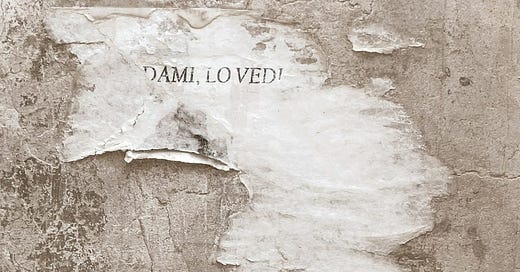This fall I was in an online workshop that took a brief detour into the ethics of erasure poetry. We didn’t have time to linger on that byway, but I’m revisiting it now to consider a specific question of ethical practice for erasurists.
Obviously, the most fundamental rule for an erasure poet is to avoid crossing the line into copyright infringement or plagiarism, both of which are not just unethical but illegal.
And the erasurist should refrain from egregious self-indulgence—humor often plays a role in erasure poetry, but that’s no excuse for crafting a limerick from, say, Paul Celan’s “Death Fugue.”
What interests me here is a more nuanced issue involving the erasure poem’s relationship to the source text.
An erasurist needs enough self-awareness and cultural sophistication to recognize and assess the risk of appropriating others’ voices and experiences. At the same time, the erasurist needs the courage to take that risk if the work demands it.
Where is the balance between those two sets of needs? Is balance even possible? These questions came up for me in connection with a personal story that one member of the workshop shared with the rest of us.
Her work deals with trauma and its aftermath. She told us she had begun an erasure whose source text was the transcript of a woman’s courtroom testimony about having been raped.1 But the poet quickly discarded the erasure. She couldn’t go on, she said, because she realized that she had been literally erasing the woman’s words and, symbolically, the woman herself.
Around the virtual table, workshop participants signaled their approval. Who can’t relate to this poet’s distress in the face of her sudden insight? Who wouldn’t respect her decision to abandon the poem? The choice was hers, as a matter of artistic freedom and ethical discernment.
And yet . . .
I could argue, correctly, that the source text is already a matter of public record, and that the woman who testified would almost certainly never find out if someone were to excavate her account of the attack and create a poem from the remains.
I could also make a strong case that the unfinished erasure poem, like any other erasure, represented a type of collaboration.
But is that a case I want to make, when the source text explicitly documents an act performed without the woman’s consent?
If I say that an erasure poem sourced from this woman’s testimony is a collaborative work, do I compound the original violation?
And doesn’t her testimony itself, offered only for the sake of a shot at perfunctory justice, almost amount to compelled speech?
As erasure poets—as artists of any kind—what do we honor or dismiss when we shape our work with an eye to others’ sensitivities, actual or presumed? What do we gain or sacrifice when we choose to accept the consequences of creating work likely to offend or cause pain?
What would you do in this situation? What do you do? What have you done?
Here are links to diverse perspectives on erasure poetry and some of its ethical dimensions:
Solmaz Sharif (her essay is no longer at the link where I first read it, but Michael Battisto’s summary is accurate, if memory serves)
I could have said “the transcript of a rape victim’s courtroom testimony” or “the transcript of a woman’s courtroom testimony about her rape.” Why didn’t I? Because this woman gets to decide whether, how, and for how long the word “victim” will apply to her. And mostly because the rape is not hers. (Somebody should tell NPR.) What is hers is the trauma, with its continuing effects. The rape belongs to the rapist—who, for the record, is also not hers. (Somebody should tell the New York Times.)




Tracy K. Smith has written a brilliant erasure poem (link below) using the Declaration of Independence as her source text. There are so many layers to this piece and the experience of this piece for the reader. The best art requires/incorporates risk. I appreciate the nuances you have considered when choosing to take a leap, as outlined in this essay.
https://www.poetryfoundation.org/poems/147468/declaration-5b5a286052461
XP - I'll be circling back to this post, to this conversation.
Stopped in to tell you that, and to thank you for this post. I have strong feelings and strong opinions on this topic. I'm seeing immediately a difference between Zong! and The Ferguson Report on one hand, and courtroom testimony on the other.
I wouldn't use the courtroom testimony for a variety of reasons, all based in how I feel about it, but I can make a case for using it.
Longer conversation than I have time for today.
Let me offer to you - and anyone else here who would like to - to host a Zoom discussion at some point in the future.